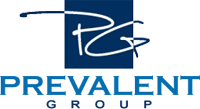- Getting out and meeting people in your industry is critical for professional success. Whether or not networking results in a job offer, expanding your professional network is always a good idea. Attending professional networking events, industry association events, conventions, and other functions will afford you the opportunity to meet new people and learn new things in 2015.
- Document your accomplishments. The most effective resumes quantify achievements. It can be difficult to pull all of your accomplishments out of your memory when you decide it’s time to revamp your resume. If you keep a running list of those achievements as they happen, and update your resume accordingly, you can be sure none will get left out. This year, make it a point to track and document your accomplishments on the job.
- Know your value. Engineers should always be aware of their value in the marketplace. Research local engineering salaries online so that you know where you fall in terms of your experience and education. You don’t want to find out the day after you accept a job offer that you’re actually getting paid $20,000 less than what you’re worth.
- Learn something new. The one constant in the world is change. What can you do this year to keep your skills sharp and learn something new? Whether you take a class or attend an industry conference, do something to enhance your skills this year.
- Focus on work-life balance. Engineers work hard, and getting ahead in the field can mean clocking long hours, often to the detriment of personal time and family time. What can you do this year to give yourself more time for the people and hobbies you love?
- Partner with a recruiter. Searching for new opportunities can be difficult for busy engineers. Partnering with a recruiter can help you connect with exciting jobs that aren’t necessarily posted on public job boards. A recruiter can also help you set goals, polish your resume, and perfect your interviewing technique so that when the right opportunity comes along, you are prepared to rise to the challenge.
Goals To Set For 2015: Where To Take Your Engineering Career
With the new year fast approaching, now is a great time to sit down and think about where you want to take your engineering career in 2015, especially if you’ve been feeling stalled in your current position. Goals give you something to strive for throughout the year, and help ensure you’re constantly pushing yourself to achieve more.
Every engineer will have his or her own unique recipe for success. Whether you are a new engineer or a seasoned professional, it’s important to set goals that will keep you moving forward, and goals that are realistic and attainable. While your overarching goal may be to land a new job, it can help to set smaller goals to create the forward motion that will set you up for success. Goals to consider to help you advance your engineering career this year include:
